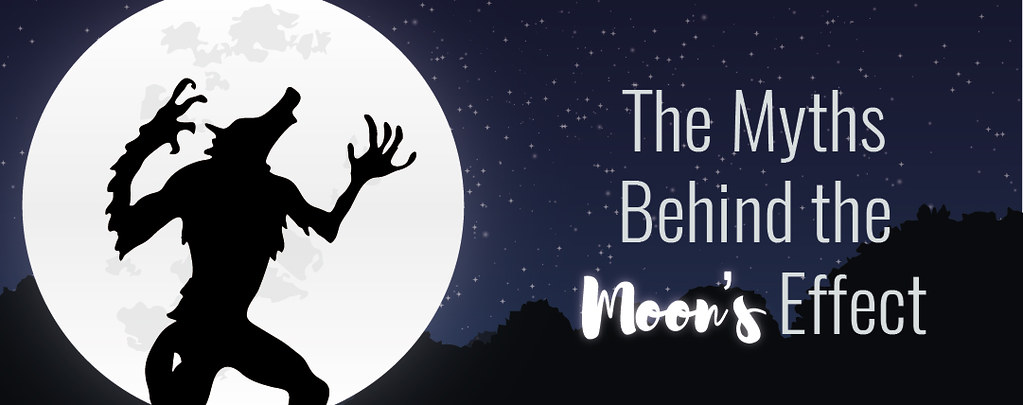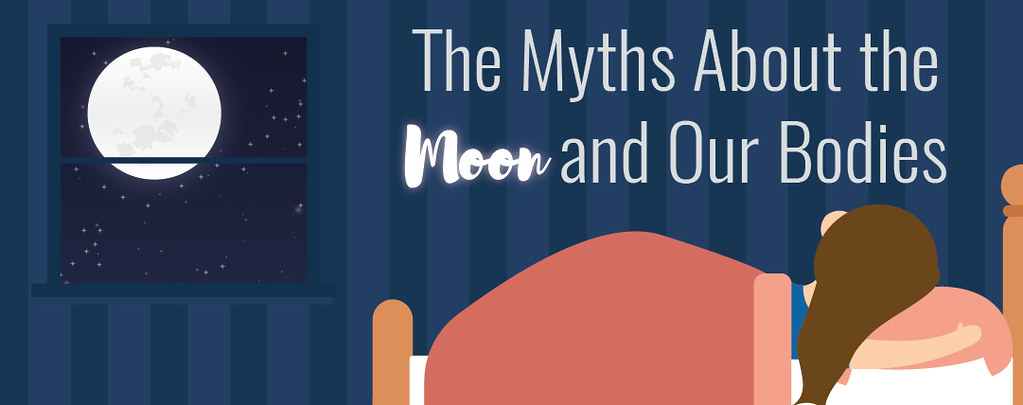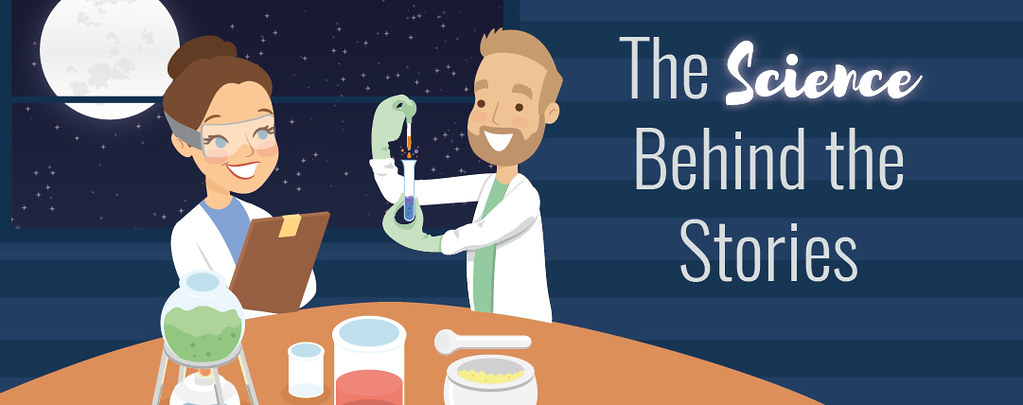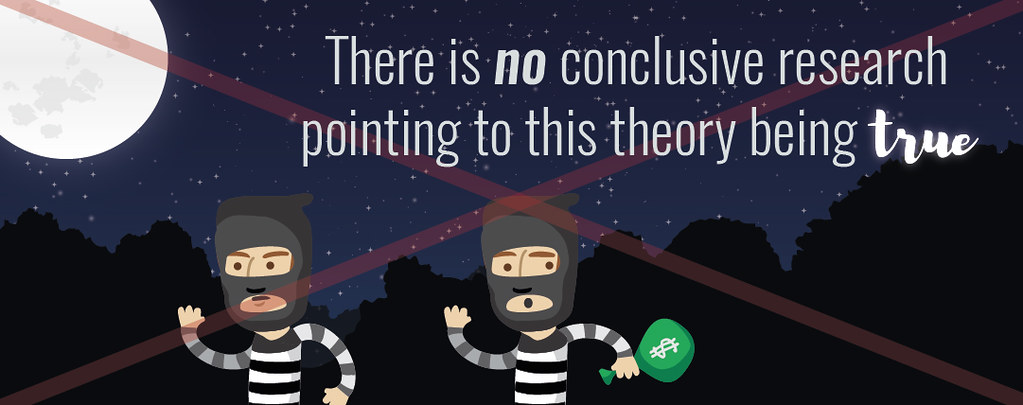We’ve all heard the myths about a full moon making things go wacky, but does the moon really have an affect on our behavior? There are certainly a number of theories out there, as well as some rock hard evidence to support both sides of the story. The moon is a mystical and magical orb that has, for hundreds of years, inspired theories, questions, and seemingly endless research. In this article, we explore the ins and outs of whether or not the phases of the moon have bearing on human behavior. Fact or fable? Keep reading to find what we’ve learned through our research.

The Myths Behind the Moon’s Effect
There are endless myths surrounding the moon and its “powers”. Let’s face it, it’s a mystical symbol that people will probably never stop obsessing over. The most commonly shared and reiterated myth is that a full moon will make people act crazy. The word “lunatic” even comes from the Latin root word “luna”, which means moon. This theory seems to have originated at the beginning of human history, with people linking a full moon or even a super moon to chaos and erratic behavior.
Along with the myth of prompting crazy behavior, it’s is also theorized that a full moon makes people act more aggressively, spurring violent acts. Some also believe that it is prone to making people take risks that they would not necessarily take during the other phases of the moon. It’s believed by some that a full moon will cause rational behavior to go out the window, making people act impulsively.
Another myth surrounding a full moon is that it will have an effect on one’s sleep habits, making it more difficult for individuals to get a good rest when the moon is fully effaced, maybe because of the increase of light during a full moon.
Finally, people believe that a full moon can affect the behavior of animals. We’ve all heard of the myth denoting the idea that a full moon brings werewolves out, but people believe that even their pets may act differently during the time of a full moon.

The Myths About the Moon and Our Bodies
Besides just affecting the way that we act, many think that the moon also has certain effects on our bodies during its different phases. Many civilizations are known to link the phases of the moon and the length of its full cycle (about 29.5 days) with the menstruation cycle of women (which is about 28 days).Some also believe that the moon has the ability to make women more fertile and to prompt births.
Somewhat alarmingly, there are theories that a full moon catalyzes a greater risk of epileptic seizure in those who suffer from the condition. Clearly it is believed that the moon and its differing phases can have somewhat significant effects on the different functions and happenings of our bodies, and many of these myths have been around for quite some time.

The Science Behind the Stories
As you can see, there is no shortage of theories surrounding how the moon affects human (and even animal) behavior. Because some of these myths have been around for decades or even centuries, extensive research has been conducted to either affirm or debunk the individual theories. In this section, we will take you through the theories and ideas we mentioned above and what science has to say about them to put them to rest once in for all!
First, let’s delve into the most common theory, which states that people are prone to acting crazy during a full moon. According to Psychology Today, scientists have researched this theory countless times and in many different ways, only to continuously come up empty handed. They have not been able to find concrete evidence that points to affirming the fact that a full moon makes people act in abnormal ways.
While there have been a number of studies and reports pointing to the fact that there has been a higher level of crime and assaults during a full moon - for instance, a study in the 1970s pointed to a higher number of aggravated assaults during the time of a full moon - there is no conclusive research pointing to this theory being true. There is also no scientific evidence that supports the claim that a full moon makes people more impulsive or prone to taking risks that they would not take during the other phases of the moon.

After marine biologist Ernest Naylor conducted studies in sleep laboratories, he learned that even if humans are completely unaware of what phase the moon may currently be in, they do seem to cause a level of variance on human sleep patterns. BBC reported that those polled in a 2013 study rated their sleep quality as 15 percent lower during a full moon and it took an average of five minutes longer for participants to fall asleep during this moon phase.
On the other hand, Naylor’s studies did debunk the theory that the cycle of the moon correlates with the menstrual cycles of women and that any sporadic correlation between the two happens by chance. As for the myth of the moon controlling the fertility of women and prompting births, studies have shown that this correlation does not exist. It would make sense that women’s fertility is not in line with the schedule of the moon, as this does revolve around menstruation cycles. Experts say that labor is much more likely to be brought on by a change in barometric pressure than a particular phase of the moon, making this theory a moot point.
Finally, experts have looked into whether the moon can prompt epileptic seizures in those who are predisposed to the condition. Doctors have confirmed that this is, in fact, not true, and have also found through extensive research that the number of seizures proved to be the highest in the moon's last quarter and that it was recorded as the lowest during the full moon, further contradicting the theory.
While there are extensive theories regarding the way the moon affects human behavior, the jury is still out on how true much of them are and scientists have shown many of these ideas to be false. However, keep in mind that the moon certainly inspires awe and questions, spurring a specific state of mind that holds beliefs so strongly that even science can’t dislodge them. Perhaps only a mystical bright and changing orb such as the moon can cause these feelings, and we don’t think these theories, beliefs, and studies will be going away anytime soon!









